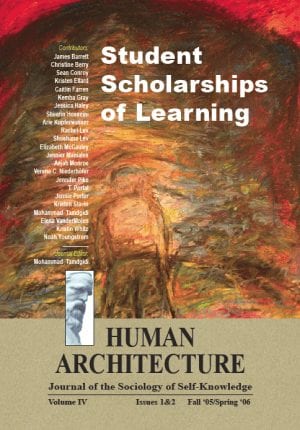Journal Article — Women of Color and TANF (Temporary Aid to Needy Families): Issues, Barriers, and Hindrances — by Asjah Monroe
$15.00
In this paper, I am advocating for the development of a social welfare system that acknowledges and respects cultural variation and that encourages collectivistic responses to alleviating poverty.
Description
Abstract
Women with children who must rely on TANF (Temporary Aid to Needy Families) are faced with obstacles of limits to higher education, asset attainment limits, lack of childcare, and demanding ‘work first’ policies. Welfare recidivism depends heavily on the trade-offs between family and work that women have to make. The TANF system and conservative proponents of welfare reform focus on work as a norm for women and adopt notions of self-sufficiency through work as a means to eradicate poverty. Despite the value of this goal, this individualism overlooks that women who do not recidivate rely on other forms of subsistence, including their extended kinship networks and community ties. TANF undermines the usage of these community ties that people of low-income communities rely on for survival. Self-determination in these women is produced by promoting asset attainment, higher education, and use of community ties/resources. The conservative idea that work is the norm, work is good for families and work leads to self-sufficiency is not realistic for these women’s lives. In this paper, I am advocating for the development of a social welfare system that acknowledges and respects cultural variation and that encourages collectivistic responses to alleviating poverty.
Recommended Citation
Monroe, Asjah. 2005/2006. “Women of Color and TANF (Temporary Aid to Needy Families): Issues, Barriers, and Hindrances.” Pp. 165-178 in Student Scholarships of Learning (Human Architecture: Journal of the Sociology of Self-Knowledge: Volume IV, Issues 1&2, 2005/2006). Belmont, MA: Okcir Press (an imprint of Ahead Publishing House).
The various editions of Student Scholarships of Learning can be ordered from the Okcir Store and are also available for ordering from all major online bookstores worldwide (such as Amazon, Barnes&Noble, and others).
Read the Above Publication Online
To read the above publication online, you need to be logged in as an OKCIR Library member with a valid access. In that case just click on the large PDF icon below to access the publication. Make sure you refresh your browser page after logging in.








